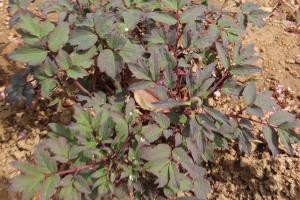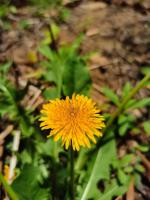Is Human Feces Good for Plants?
Human feces, also known as human waste or excrement, is often considered taboo and unpleasant. However, it is a natural product that contains essential nutrients for plant growth. The practice of using human waste as a fertilizer has been around for centuries in various cultures. But is human feces really good for plants? Let's find out.
The Nutrients in Human Feces
Human feces contains a variety of nutrients that are essential for plant growth, including nitrogen, phosphorus, and potassium. Nitrogen is important for the development of plant tissues, while phosphorus is necessary for root growth and flower development. Potassium helps in the regulation of water and nutrient uptake and is important for overall plant health and vigor.
The Benefits of Using Human Feces as Fertilizer
Using human feces as fertilizer has many benefits. Firstly, it is a cheap and readily available source of plant nutrients. Secondly, it reduces the need for synthetic fertilizers, which are expensive and can damage the environment. Thirdly, it can help to improve the soil structure and increase the water-holding capacity of the soil.
Risks and Precautions
However, there are also risks and precautions that need to be taken when using human feces as a fertilizer. Human waste can contain pathogens and harmful bacteria, such as E. coli, salmonella, and hepatitis A. Therefore, it is important to compost the waste properly before using it as fertilizer. Composting involves breaking down the waste in a controlled environment, where it is exposed to high temperatures that kill off harmful microorganisms. It is also important to avoid contact with human waste and to wash your hands thoroughly after handling it.
Legal and Cultural Considerations
Using human waste as fertilizer is legal in many countries, including the United States. However, there may be cultural and social stigmas attached to the practice, particularly in urban areas. It is important to seek permission from local authorities before using human waste as fertilizer, and to educate the public about the benefits and safety precautions of the practice.
The Bottom Line
Human feces can be a valuable source of nutrients for plants, but it is important to use it carefully and responsibly. Composting the waste properly and taking necessary precautions can help to reduce the risks of using human waste as fertilizer. By adopting this practice, we can reduce waste, save money, and promote sustainable agriculture.

 how many times do yo...
how many times do yo... how many planted tre...
how many planted tre... how many pine trees ...
how many pine trees ... how many pecan trees...
how many pecan trees... how many plants comp...
how many plants comp... how many plants can ...
how many plants can ... how many plants and ...
how many plants and ... how many pepper plan...
how many pepper plan...





























